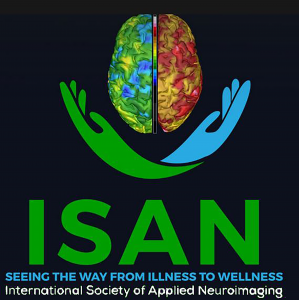Psychiatry Moves into the Test Era
A landmark real-world study shows that the SPECT functional brain imaging can predict which patients with chronic psychiatric disorders are improving.
Seventy-three patients had SPECT functional brain scans before treatment and then had another SPECT functional brain scan on average 450 days later. The scans were found to have a sensitivity of 94% in predicting which patients were worsening and which were improving. Dr. Thornton said about this work, “SPECT shows what part of the brain is under-functioning or over-functioning and thus allows the psychiatrist to choose a medication to calm down the over-functioning or increase the under-functioning areas. This permits earlier targeting of treatment and thus can lead to earlier improvement.” The group published the paper to show that SPECT scans, often maligned by psychiatrists, do actually improve clinical outcome. Members of this group previously published a study showing improved outcome in another group of psychiatric patients when SPECT scans were utilized to guide care. Dr. Daniel Amen who has worked with SPECT scans for decades said, “Psychiatric practice has changed little in the last 40 years and outcomes have not improved at all. This paper gives a completely new paradigm for helping patients who struggle with psychiatric issues”.
Drs. Thornton, McLean, Schneider, van Lierop, Siow, Henderson, Cohen, Uszler and Pavel (sadly, now deceased) and engineer DeBruin are members of an international consortium of neuroimaging experts and clinicians, the International Society of Applied Neuroimaging (ISAN). ISAN was founded to foster education about functional neuroimaging, research psychiatric and medical applications of functional neuroimaging, and assist clinicians in incorporating functional neuroimaging into their clinical practices. The group has also published papers in Frontiers in Psychiatry and Interventional Medicine and Clinical Imaging, to educate the practicing psychiatrist about functional neuroimaging. The group has collective experience of hundreds of years of using functional neuroimaging, particularly SPECT imaging, to improve the diagnosis and treatment of patients and they have collectively read over 280,000 SPECT scans.
Theodore Henderson
Neuro-Luminance Inc.
+1 720-493-1101
email us here
Visit us on social media:
Facebook
Twitter
LinkedIn
Legal Disclaimer:
EIN Presswire provides this news content "as is" without warranty of any kind. We do not accept any responsibility or liability for the accuracy, content, images, videos, licenses, completeness, legality, or reliability of the information contained in this article. If you have any complaints or copyright issues related to this article, kindly contact the author above.

